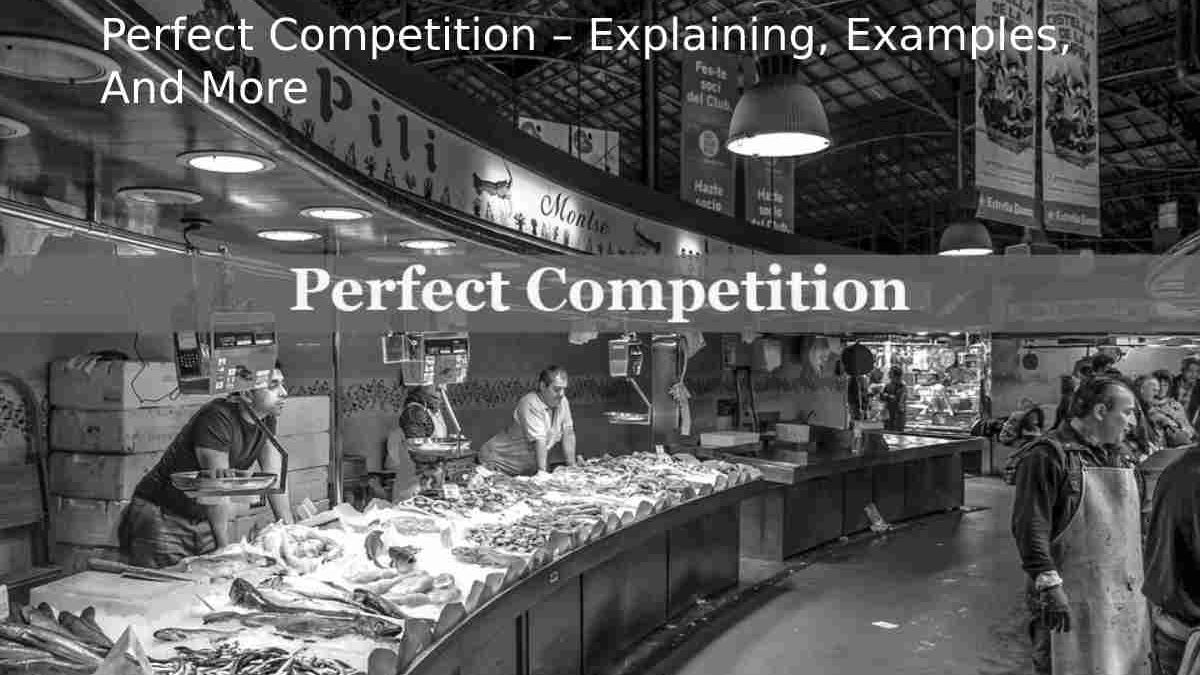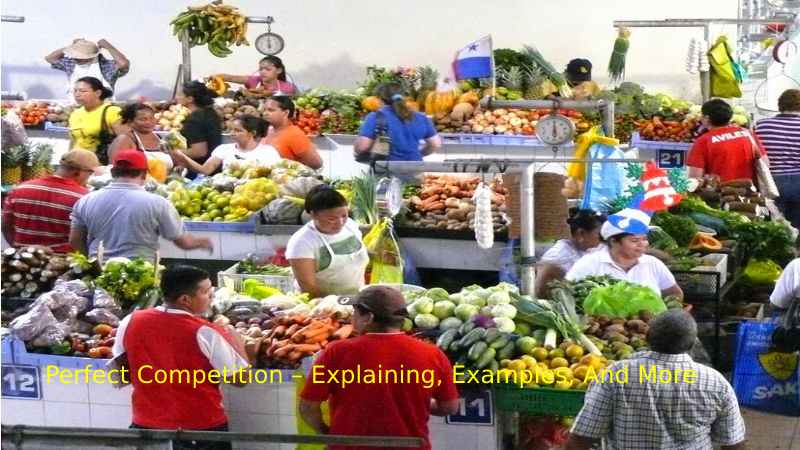Table of Contents
Perfect Market Competition – Explaining
Perfect competition is a type of market building where many companies sell similar products, and profits are virtually non-existent due to fierce competition. It is essential to realise that perfect competition is an abstract term that compares against real-life markets. Although ideal competition is based on assumptions that rarely exist, there are some comparative examples in reality. With that said, there are some key characteristics of perfect markets that identify them as such. Describes a market structure where competition is at its most excellent possible level. To make it more transparent, a market exhibits the following characteristics.
Let us Look at Them Below:
The number of participants in the market means that each company is prevented from raising prices. They will be forced out of the market as consumers can switch to cheaper alternatives if they do. Competitors all have a similar market share since firms cannot compete on price as firms produce where Marginal Revenue = Marginal Cost, there is no room to reduce expenses. In turn, this restricts a firm’s ability to gain market share. If a firm were to lower prices, it would start making a loss – because it costs more to make than sell, meaning it would go out of business. At the same time, if any firm grows prices, there is enough competition to attract customers from that store and put them out of business.
Key Points
- Perfect competition is a market structure where products are homogenous and many purchasers and sellers.
- It is held as the model market structure for parsimonies to operate.
- Whilst perfect race does not precisely exist, and examples include the likes of agriculture, foreign exchange, and online shopping.
Many Competing Firms
A perfectly competitive market has many consumers and sellers. This means that firms are known as ‘price takers. In other words, the secure must sell at the ‘equilibrium’ price – this is where the firm sells when supply and request bring into line. If not, they will go out of business, as many other firms sell similar goods at a low price. As a result, customers have little cost of converting to a substitute good.
Perfect Market Competition Examples
It is often quantified that perfect competition does not exist in the real world. To a certain extent, this proposition is correct. For instance, ideal matches may have lived in previous centuries when commodities were the primary source of economic activity. In particular, coal, oil, metallic, and corn were significant parts of the economy. At the same time, If we go back centuries to old fashioned markets, we will find many buyers and many sellers of the same product. For example, many bakers may come to the need to sell loaves of bread—a homogenous product, with large numbers of buyers and vendors that can enter or exit the market.
Times have changed. We now live in a budget where firms compete by offering different harvests.
Agriculture:
In this market, products are very similar. Carrots, potatoes, and grain are all generic, with many farmers producing them. As the product is homogenous, it is easy to buy some land and farm it. Additionally, it is also easy to leave the market too. So, the market has key signs of perfect competition.
Foreign Exchange Perfect Markets Competition:
In this market, traders exchange currencies. As there is only one US Dollar, one Great British Pound, and one Euro, the product is homogenous. Additionally, there are many sellers and buyers in the market. Also, it is easy to buy some currency and easy to sell it. There is an exclusion because traders may not have ‘perfect information’. Regular buyers and sellers may be at a disadvantage compared to professional traders who do it. It is one of the nearby examples of perfect competition we can find today.
Conclusion
Perfect competition is an economic term that refers to a theoretical market structure in which all suppliers are equal and overall supply and demand are in equilibrium. For example, if several firms produce a commodity and no individual firm has a competitive advantage, there is perfect competition. In this ideal market, quality is comparative across firms, and buyers can purchase the product for the lowest possible price. Perfect competition is an economic term that refers to a theoretical market structure in which all suppliers are equal and overall supply and demand are in evenness.
For example, if several firms produce a commodity and no individual firm has a competitive advantage, there is perfect competition. In this ideal market, quality is comparative across firms, and buyers can purchase the product for the lowest possible price.


